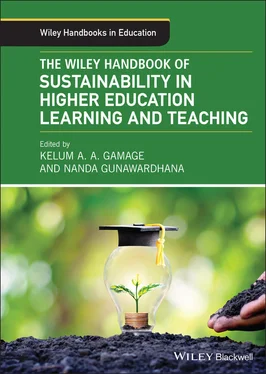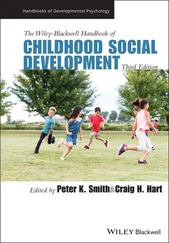Another challenge I suppose would be that they have not really engaged with the actual sustainability aspect as much as I would have hoped. I've actually been told off for turning off too many lights, and it's just been difficult in that aspect.
(Student 3, Year 2 of project)
Where these challenges were experienced, students identified that many issues came down to difficulties communicating amongst the group living in the house, and reflected that more regular meetings, setting of objectives, and willingness to engage in possible areas of conflict in order to tackle issues could have helped the project to achieve more by providing a clear direction and regular reminders of required activities.
The process of sharing experiences in a group is an important part of engaging in social action, and the experience of collectively working toward a common cause can be profound (Williford 2015). Informal environmental activist learning occurs through engagement in social movements and social processes situated in our daily interactions with others (Ollis 2008). The SSH clearly has the potential to create a genuine community of practice (Wenger 1999) in which social learning about both sustainable living and activism can occur. However, the degree to which this potential is achieved is dependent on the skills, knowledge, and attributes of those involved, and the ability and motivation to ensure effective communication and participation. As with student group work in other contexts (e.g. Hassanien 2006), interpersonal issues, including communication, scheduling, conflict, and equal participation are seen as key challenges in service learning projects (e.g. Crump 2002; Parece and Aspaas 2007). Even where individuals live in the same house, creating the time, space, and willingness to communicate effectively can be difficult. The academic staff supporting students to initiate the project encouraged the students to take on specific roles and responsibilities, including leadership for the project, although the interviews suggest that this distribution of responsibility was not realized. A reason why more formal leadership and structures of project management (such as regular meetings amongst the housemates) were not taken up might be because students did not want such formal structures within their private spheres.
In any student activism initiative, students involved will have different degrees of readiness to take action (Brinkman and Hirsch 2019), and with this might come different expectations of “success.” Two of the students interviewed in the second year of the project were positive about their learning and the experience, while the other student interviewed was disappointed by what had been achieved:
Well I'm fairly disappointed, to be honest, with this year. The main projects…have kind of been set up, that have not really been finished…So, in terms of what I'm proud of I suppose it's making the project continue rather than actually adding to the project I suppose.
(Student 3, Year 2 of project)
The success of project results can be particularly meaningful to those who view themselves as activists (Bilon 2021). This disappointment in the project could be self‐interpreted as “failure” and ultimately lead to a decrease in the perception of their agency (referred to by Bilon 2021, p. 173 as the “non‐learning of agency”). As activist learning inevitably carries a risk of failure (Ludlow 2010), support for students in understanding the risks of failure, and managing the impacts of perceived failure are a potential area for staff involved in activist learning projects, to explore.
2.3.3 Students' Transience
University students are inherently transient members of the university community, both through the year (marked by holiday periods and uneven academic workloads) and due to the time‐limited nature of their studies (typically three years for non‐vocational, undergraduate courses in the UK). In the SSH project, annual turnover of housemates was enforced to allow a new cohort of students each year to live in the SSH. However, many students were informally associated with the project before becoming a resident and stayed involved in the project in some way after they had moved.
Students' transience can pose several challenges for activism projects (Laycock Pedersen et al. 2019). Ensuring ongoing maintenance and continuity can be logistically challenging (especially for the garden) and requires students to plan for maintenance during their absences. Furthermore, maintenance of such a project is so demanding that it can limit the types and amounts of new projects students can take on. One interviewee (Year 2) expressed disappointment with what was achieved in their year, feeling that in that year they had “only continued” rather than added to the project. Creativity and agency are important aspects of both learning and motivation and therefore opportunities for students to exercise these through new project developments are not only desirable (Briggs et al. 2019), but necessary for the project to contribute to activist learning. As such, there is a tension between the need to support students with new projects and encourage students to maintain and continue with existing projects.
A chronic issue within transient projects is knowledge handover (Laycock Pedersen 2019). This issue is particularly acute for the SSH because of students' relatively limited food growing competencies. To mitigate the lack of a handover, students were encouraged to produce a report or other artifact to pass on their project learning (including such prosaic information as crop rotations used) to the following year's students. This was carried out partially and reluctantly and, likely as such activities felt like “work,” competed with formal curriculum deadlines and/or there were no consequences for outgoing residents if this information was not completed. Knowledge was likely more effectively transferred where more informal student involvements overlapped between years. Subsequent housemates living in the SSH in 2019–2020 and 2020–2021 set up and developed a shared drive with resources, photos, and guides which help address the knowledge transfer issue.
At the start of each year, the new housemates demonstrated limited understanding about the complexity of driving real change. For example, their insight was limited regarding the need for involvement and negotiations with diverse stakeholders. In particular, there was a lack of understanding about the importance of negotiating with the university in order to carry out activities (such as digging, hedge trimming) in the SSH grounds. Many change projects require development of relationships and trust between diverse stakeholders over long‐term periods beyond the timescale of any one student's time at university (Brinkman and Hirsch 2019). This means that if university staff have negative experiences of one group of housemates, it can tarnish the relationship with the next. As a result, long‐term stakeholders need to understand that each set of students comes fresh to the project, without the learning and experience acquired by previous students. There also needs to be an understanding that the SSH is intended to be fundamentally pedagogical in nature, and therefore the tangible outcomes of student projects may vary in quality and impact. As such, it is important that there are permanent members of staff who understand the pedagogical nature of the project to support and mediate good quality student–university relationships.
2.3.4 Time Management and Competing Priorities
Time management was a key issue for students living in the SSH, whether juggling competing demands between academic studies, personal issues and the SSH project, or competing demands of a myriad sustainability‐related projects. Time pressures were articulated as being particularly severe when SSH residents were in the final year of their degrees.
Читать дальше












